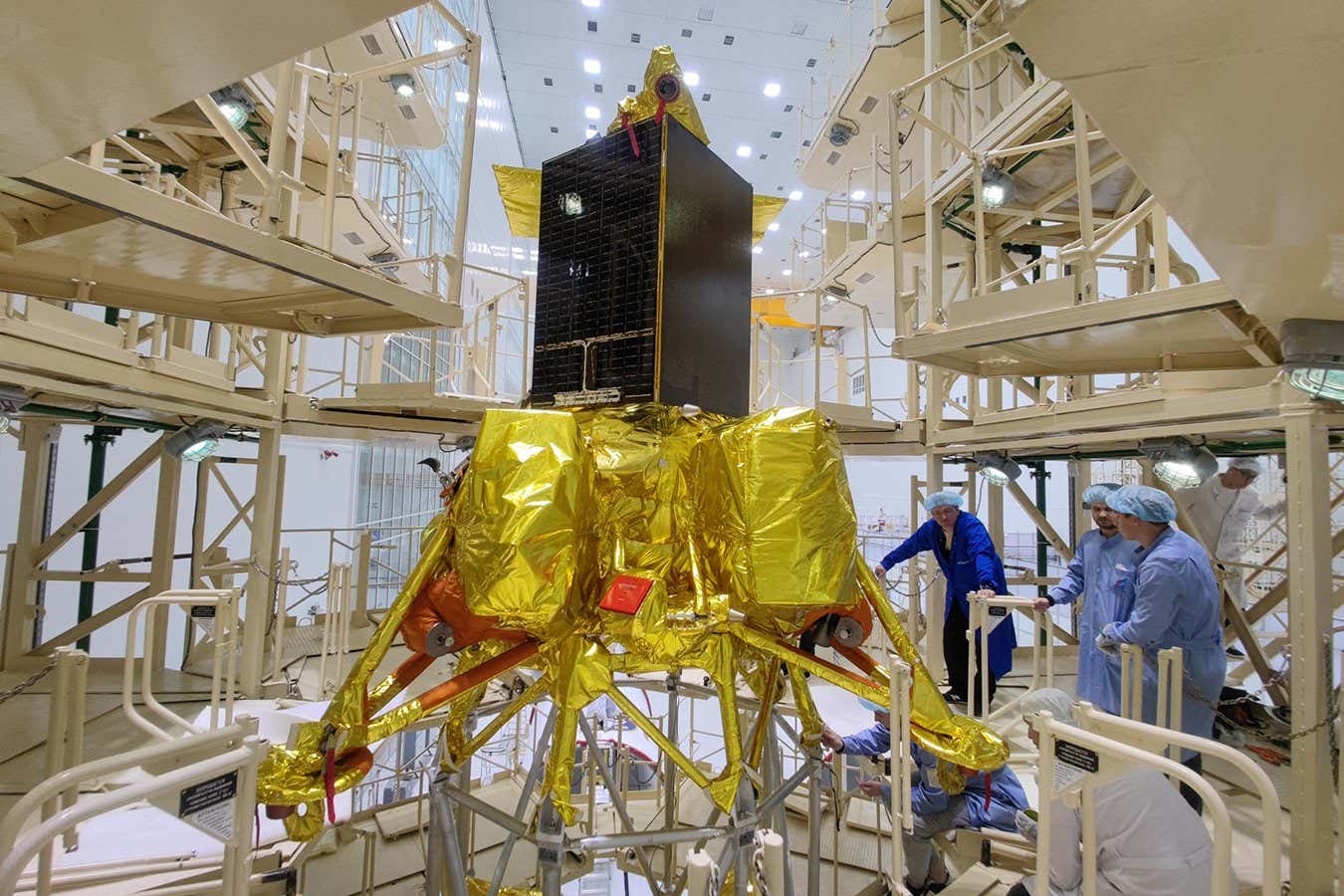Russia’s first lunar mission in nearly 50 years is designed to land near the moon’s south pole and is being viewed as an attempt to show that the country can still compete in the international space industry
By Leah Crane
10 August 2023
Final preparations are under way ahead of the launch of the lunar landing spacecraft Luna 25
Roscosmos
Russia is about to launch its first moon mission in nearly 50 years. It is an important mission for the Russian space industry, which has been in decline for decades. It is also being interpreted as part of Russia’s campaign to regain the power and importance on the global stage that it once had as part of the Soviet Union.
The Luna 25 mission is scheduled to launch on 11 August from the Vostochny Cosmodrome. It consists of a lander with scientific instruments designed largely to study the make-up and properties of moon dust, and it is intended to land about 11 days after launch.
The mission’s name links it directly to the space missions of the Soviet Union: Luna 24, this mission’s predecessor, took place in 1976. Luna 25 is in many ways remarkably similar to Luna 24, but rather than landing in the moon’s equatorial region as all previous Luna landers did, it is intended to land near the moon’s south pole, an area of particular interest for human exploration because of its water reservoirs.
Advertisement
After Luna 24, the booming Soviet space industry began to fade along with the last vestiges of the cold war’s space race. The collapse of the Soviet Union 32 years ago meant that Russia had to launch a new space agency, Roscosmos, which has suffered from political chaos and funding issues. In recent decades, many other players have joined the crowd operating in space. Now, there is a new space race – and Russia doesn’t have the head start that the Soviet Union did.
Read more:
Return to the moon: Why are we restarting human lunar exploration now?
“It seems like this is something about ‘Make Russia Great Again’. It’s about reclaiming territory that the Soviet Union had and reaching for some of that former glory,” says Andrew Jenks at California State University, Long Beach. “There’s an awful lot riding on this launch, in terms of whether Russia has the right stuff on the international stage to show that it can compete in an area where it had once been a clear leader.”
